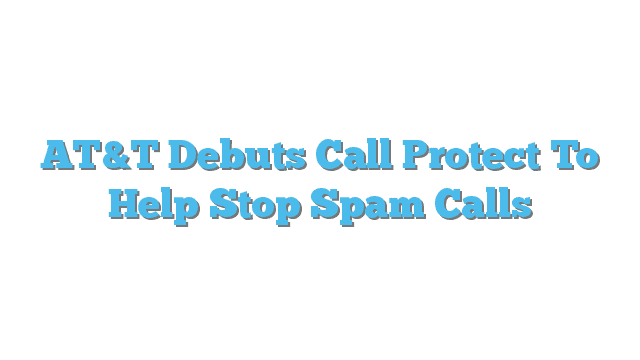Robocalls have become a “scourge” on U.S. consumers, Federal Communications Commission (FCC) Chairman Tom Wheeler said this past summer upon calling on the tech industry to help find solutions. One proposed fix, just launched by AT&T, is to provide wireless customers with automatic blocking of fraudulent calls and warnings of suspected spam calls.
Rolled out yesterday, AT&T’s Call Protect is just the latest effort to reduce the number of automated marketing calls that people receive on their phones. As of last month, some 2.4 billion of such calls were made in the U.S., according to the cloud-based telecom service YouMail.
Technology might help to slow the volume of robocalls, but it’s also what has enabled them in the first place, according to the FCC. Faced with such a “doubled-edged sword,” the FCC created an industry-led Robocall Strike Force this summer, which is chaired by AT&T CEO Randall Stephenson.
Aimed at Phone Fraud and Scams
“Nuisance calls are an industry-wide problem that unfortunately affect many people,” Jeff Bradley, AT&T’s senior vice president for Device and Network Services Marketing, said yesterday in a statement about Call Protect. “We’ve listened to our customers and know they want a network that provides tools to proactively assist in blocking nuisance calls.”
AT&T customers can activate the new service either through their online accounts or through a complimentary Call Protect mobile app for iOS or Android smartphones. The service is available to postpaid wireless customers with AT&T’s HD Voice; warnings about suspected spam calls will be provided only in HD Voice coverage areas.
By automatically blocking suspected fraudulent calls, Call Protect is designed to “reduce the chances that a customer will become the victim of a phone fraud or scam,” AT&T said. The company acknowledged the service could also inadvertently block some wanted calls or service messages, but noted that users can adjust their settings to either block or allow specific numbers.
Congress Weighs Robocop Act
The telecom industry has had a mixed track record when it comes to blocking unwanted calls for customers. For instance, in May AT&T’s Stephenson told the Dallas News that he also hates robocalls, adding that FCC required companies to first get permission to block such calls.
However, the FCC in June 2015 approved a proposal designed to protect consumers against unwanted robocalls and spam texts. It also noted that action “made clear that telephone companies face no legal barriers to allowing consumers to choose to use robocall-blocking technology.”
Congress is also considering the Robocop Act (Repeated Objectionable Bothering of Consumers on Phones) that would require telecom and VoIP service providers to provide technology to verify caller IDs and enable customers to disable unwanted incoming calls.
Other companies that currently offer robocall blocking services include Time Warner Cable and Verizon, which both have enabled customers to use an app called Nomorobo. Nomorobo was the winner of a 2013 competition led by the Federal Trade Commission, which also operates the National Do Not Call Registry. According to the FTC’s last update for the registry, some 226 million phone numbers are now signed up for the anti-telemarketing list.







